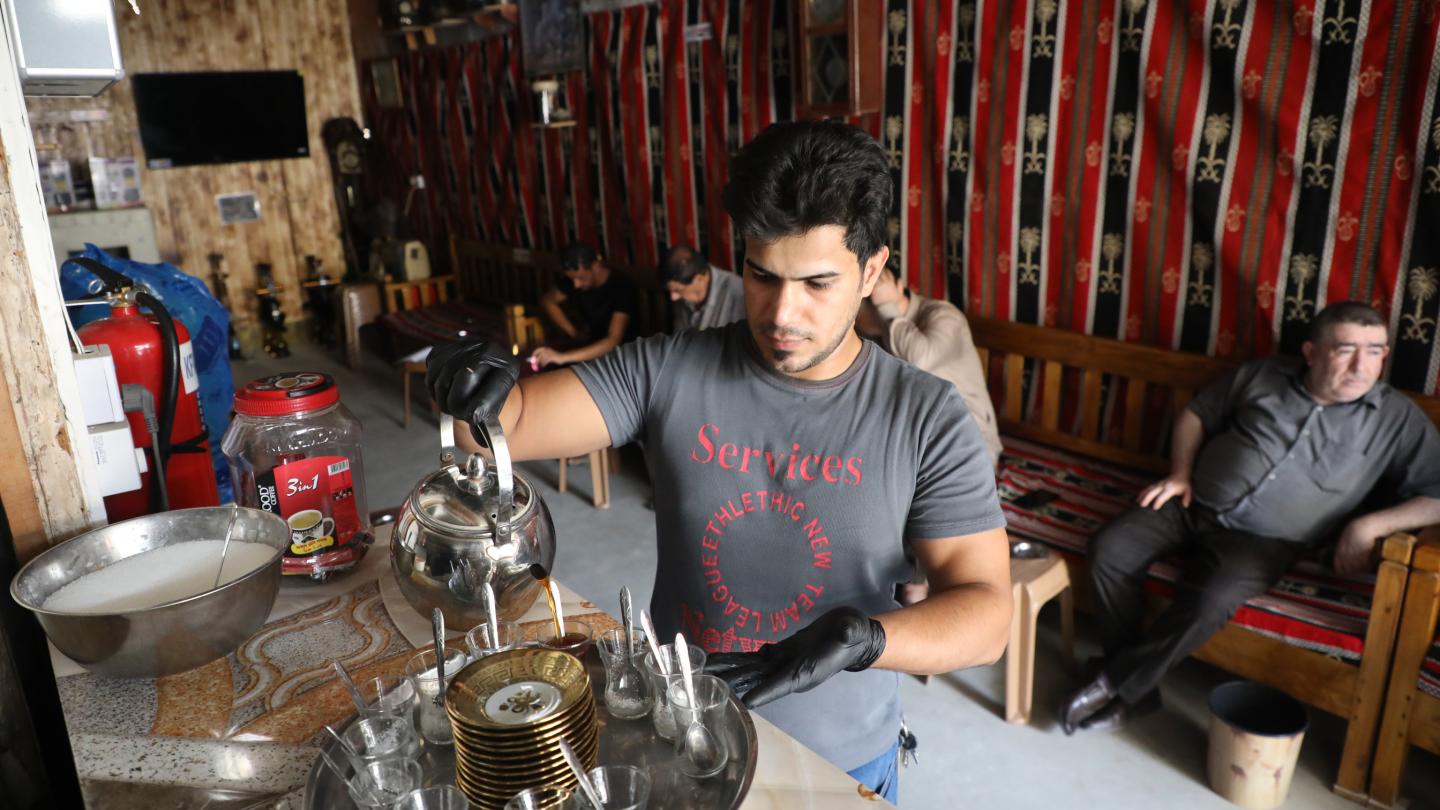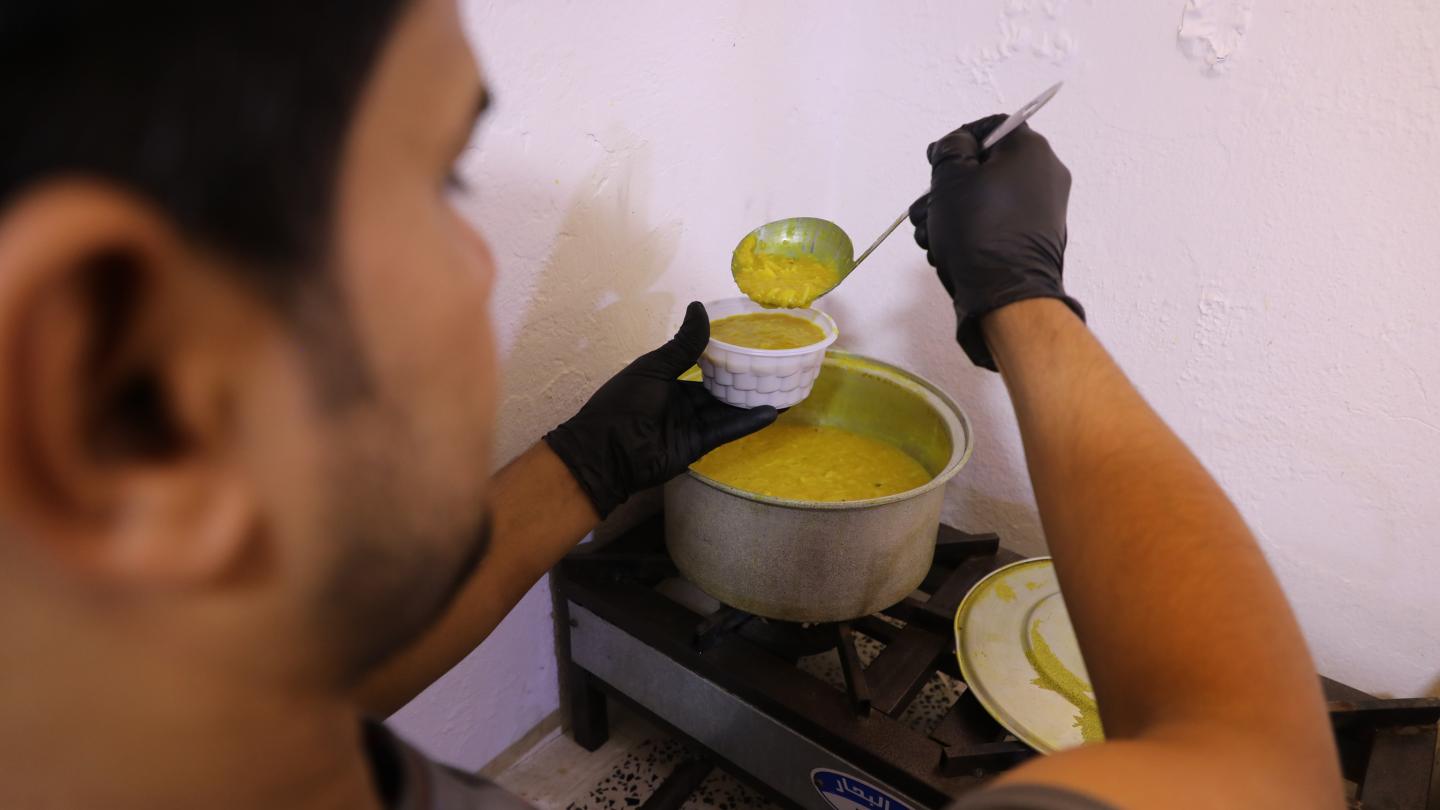Overcoming barriers: Persons with disabilities share their experiences
November 29, 2024

Persons with disabilities represent 16 percent of the global population, or one in six people worldwide. Deeply entrenched barriers prevent many from achieving their full potential.
Persons with disabilities represent 16 percent of the global population, or one in six people worldwide. That is approximately 1.3 billion people; all with different lives, distinct experiences, diverse stories to tell. But one common theme remains – that is the deeply entrenched barriers that mean persons with disabilities are less likely to be able to access health care, less likely to be employed, and nearly twice as likely to be discriminated against – among other forms of marginalization.
To mark International Day of Persons with Disabilities 2024 we hear from people in Lebanon, Cambodia, Zimbabwe, Ukraine, Iraq and Antigua and Barbuda as they explain the challenges they face and their hopes for the future.
“Many don’t understand how to treat a child with autism"
In September 2024, Mohammed was forced to flee with his family following airstrikes in the Southern Beirut suburb where they lived.
As an 8 year-old boy with autism, Mohammed found the disruption unbearable. He was suddenly in an unfamiliar world - in a strange bed, without his favorite toy, wearing new clothes that felt strange against his skin.
"Living with other displaced families in a shared home has been overwhelming. Many don’t understand how to treat a child with autism, and that lack of understanding only adds to Mohammed’s struggles—and our pain as parents," says Souad, Mohammed’s Mother.
His parents, already fearful and exhausted, struggled to comfort him.
"Sometimes, Mohammed’s screaming or crying frustrated others in the house, and we were left with no choice but to spend hours in the streets. It was exhausting for him, and overwhelming for us as parents,” says Bassem, Mohammed’s father.
UNDP is scaling up its efforts to support all of those affected by the conflict. In partnership with the government, UNDP is working to ensure safe access to homes while also securing services, jobs, and access to financing for livelihoods with consideration to households that include people with disabilities.
"I am glad to be part of this change"
If you visit Mepring village in Cambodia, chances are you might run into Ms. Vannet. For years she has been coordinating with the commune’s council to help improve the lives of over 300 persons with disabilities, more than half of whom are women and girls.
"I have faced challenges I would not wish for anyone with disabilities. So, my mission is clear: To eliminate any form of discrimination and violence against persons with disabilities, especially women and girls,” she said.
Having recently enrolled in an advocacy and coaching workshop, supported by UNDP, she has been able to successfully lobby the commune council to adopt a host of new activities including providing transportation assistance for persons with disabilities to access health services, conducting campaigns to educate the public on disability rights, and facilitating access to social assistance.
“I am glad to be a part of this change, and I hope to continue working to make our commune more inclusive and accessible for everyone.”
“I take pride in proving that individuals with disabilities can succeed in all areas"
Ian Vambe, is a 29-year-old presenter with the Zimbabwe Broadcasting Corporation’s Classic 263 Radio. As a passionate broadcaster and disability rights advocate, he has been hosting the Zimbabwe Electoral Commission civic education weekly radio programmes, supported by UNDP.
“The ability to initiate and lead new conversations is thrilling. Being a person with a disability myself, I take pride in proving that individuals with disabilities can succeed in all areas. Above all, my job serves as a platform to advocate for the rights of people with disabilities,” he explained.
Ian intends to continue utilizing his broadcasting skills to educate and spread accurate information. He is also interested in advocating for the provision of information in accessible formats for persons with disabilities.
“It felt like I was living in an inescapable nightmare"
In the heart of the old Baqubah market in Iraq, stands Mohammad’s Café, run by 27-year-old Mohammad Jalil. A person with hearing and speech disabilities, Mohammad inherited the café from his father, a veteran living with war-related disabilities.
In the past, he only served hot drinks and his earnings could barely met the family's basic needs.
"Those were difficult days. I didn’t know what to do,” he explained. “I couldn’t provide for my family’s basic needs, and our debts kept piling up. It felt like I was living in an inescapable nightmare."
But with a small grant from UNDP, Mohammed renovated the café and equipped it with simple cooking equipment. The transformation attracted new customers, turning the café into a bustling hub of the community and increasing Mohammad’s earnings significantly. This has allowed him to support his family and to hire another worker, creating a job opportunity for someone else facing difficult circumstances.
“I feel needed again and I’m looking forward to my first working day"
Ukraine is now the most mined country in the world, with potentially 23 percent of its territory – an area larger than England - at risk of contamination with landmines and unexploded ordnance.
Ruslan Yakob, 33, was injured during the full scale Russian invasion in June 2023, and now has a prosthetic leg. He recently participated in a new project, supported by UNDP, which aims to expand job opportunities for veterans by facilitating their involvement in the demining sector.
Having completed the training course he has now secured employment working as a satellite imagery analyst for humanitarian demining and is determined to contribute to Ukraine’s safety and recovery.
“This is not just a job, but a chance to contribute to the safety of Ukrainian land” he explained.
I feel needed again, and I’m looking forward to my first working day.”
“Because I can’t see, I use my hands, nose and feet to ‘see’ what the soil needs”
Gaynel Agustus, 43, used to work at a local radio station until she lost her vision due to health-related complications. From that point on, she started focusing on working on her little backyard garden with her son.
“I love to get my hands dirty, and I love plants. Because I can’t see, I use my hands, nose and feet to ‘see’ what the soil needs, or if it is just right.”
Gaynel is now Vice President of the Antigua and Barbuda Association for Persons with Disabilities, which has recently benefitted from a new a project to improve food security for persons with disabilities. Supported by the Global Environment Facility Small Grants Programme and implemented by UNDP, the project aims to develop a fruit tree nursery and orchard, along with a greenhouse, a hydroponics system, a water harvesting system and an apiary. According to Gaynel, they have already harvested papaya, cherries, bananas and more.
“I eat from the garden all the time! It is great for me, not just because I love plants but because I am a diabetic… Because of this project, my diet has definitely improved.”

 Locations
Locations



















